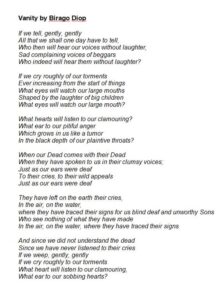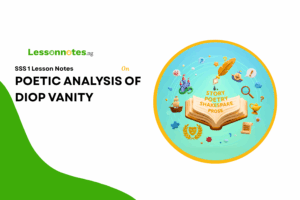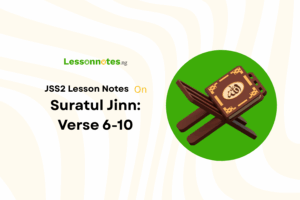African Poetry: Birago Diop’s Vanity SS1 Literature-in-English Lesson Note
Download Lesson NoteTopic: African Poetry: Birago Diop’s Vanity

READING AND ANALYSING THE CONTENT OF THE POEM “VANITY.”
This is a poem of lamentation. The poet is worried about the social misfortune that has befallen his people and the seeming indifference of the people to the apparent solution. The poet sees the problems as self-inflicted. He also sees the answers to the problem but they seem not to listen. The first two stanzas capture the complaints of the community and the people’s contemptuous reaction. The poet says that no outsider will take the cries of the community seriously because they are not only trivial, and self-inflicted, the people themselves are not serious and receptive to their traditions and ancestry.
The poet states that the community’s approach to airing their complaints, whether gently or loudly, will not mitigate the derisive reaction of the people. This is seen in lines 1 and 6. The poet goes on to say that the complaints of the people did not start today. He depicts the people as insincere.
The poet proffers answers to the question of Africa’s unending social trauma in the succeeding stanzas. Africans must look inward to solve their problems. We must go back to our roots, recognize our ancestors, take pride in our tradition, believe in ourselves and our products and stop the crazy dependence on foreign ideas. The poet sees it as sheer vanity looking up to Western civilization to solve our domestic problems while the basic facts of existence are left unattended.
The last stanza is a logical deduction from the preceding lines. The poet concludes that it is futile complaining when we know the source of our predicaments but refuse to amend our ways. To him, Africans can only fare well if she recognizes continually the undying presence of the ancestors and obeys their instructions.

















